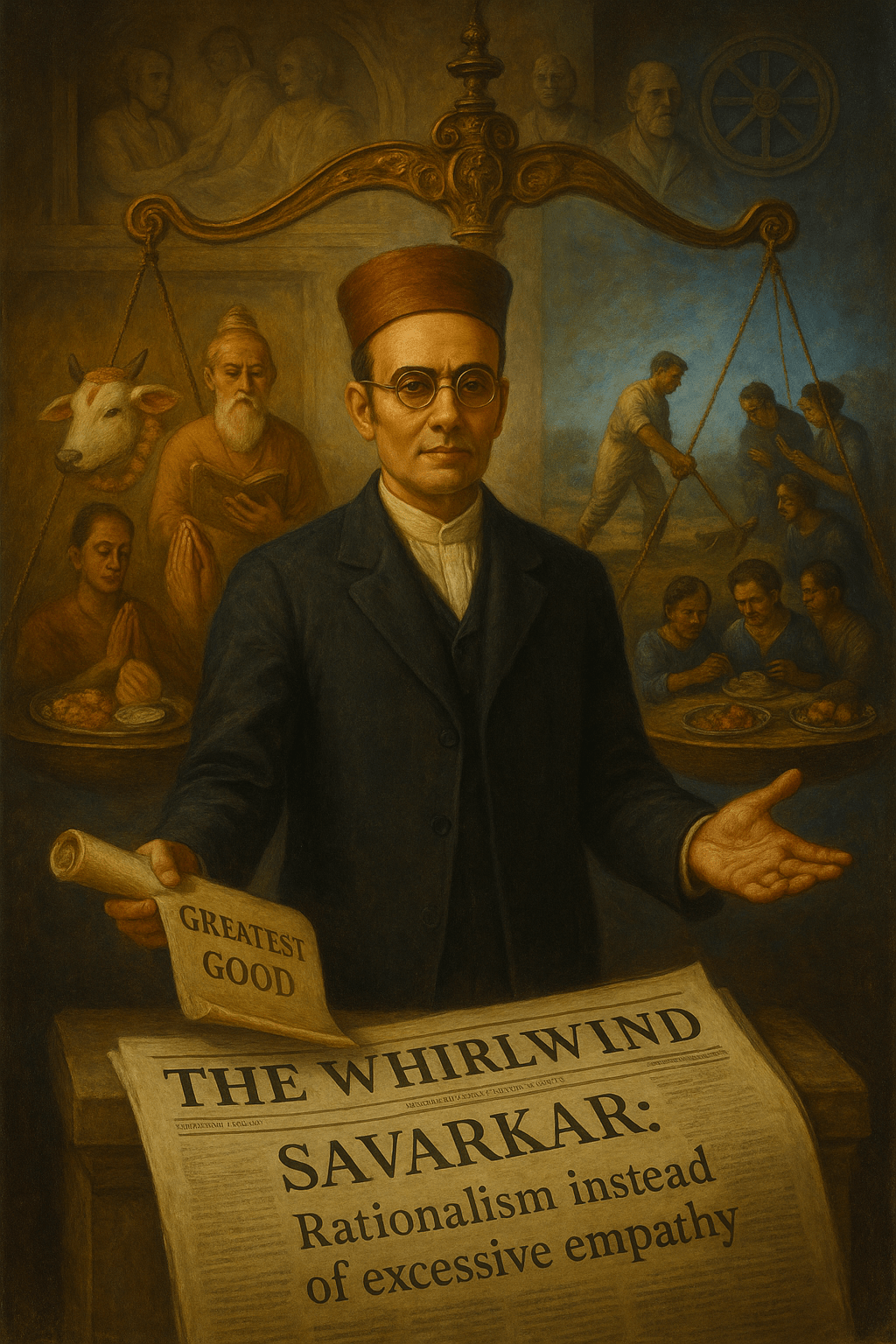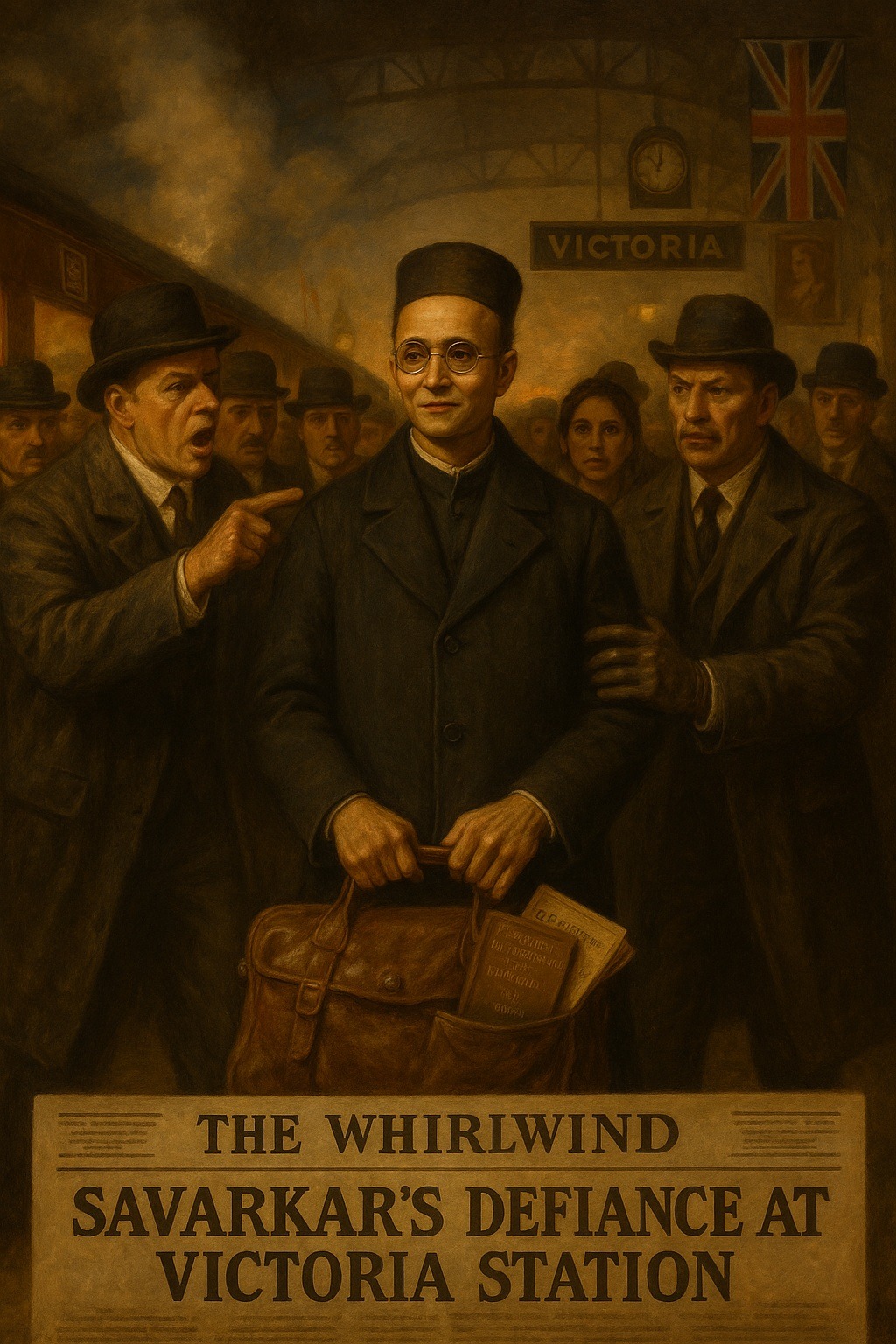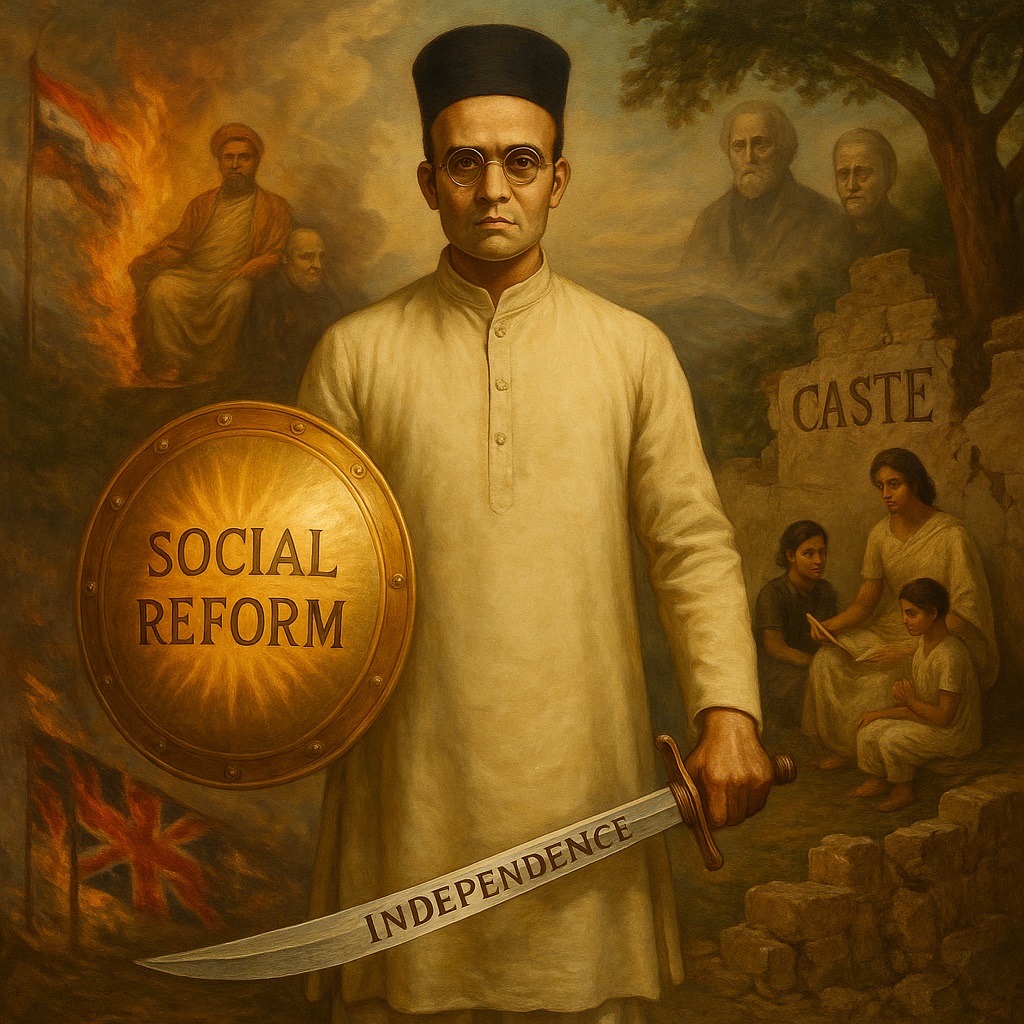Tag: Mazzini
-
Political Dimension of Hindutva, Part 12 Introduction – Savarkar’s Radical Philosophy of Resistance Few statements in modern Indian political thought are as provocative as Vinayak Damodar (Veer) Savarkar’s declaration that relative non-violence is a virtue, absolute non-violence a crime. This concise yet explosive maxim captures the essence of Savarkar’s departure from the dominant ‘Gandhian ethos’…
-
Savarkar’s Philosophy & Worldview, Part 10, Savarkar’s Five Philosophical Dimensions (3/6) Vinayak Damodar (Veer) Savarkar is often remembered for his unflinching advocacy of nationalism, but was also a man of profound philosophical depth and his philosophy encompassed much more than a call for political independence. In this third installment of our exploration of Savarkar’s five…
-
On Sunday, 13 March 1910, Vinayak Damodar (Veer) Savarkar’s revolutionary mission in Europe met a dramatic turning point. That evening, as he arrived by train from Newhaven (via Paris) at Victoria Station in London, he was arrested by officers of the Metropolitan Police under charges of sedition, conspiracy, and waging war against the British Crown.…




